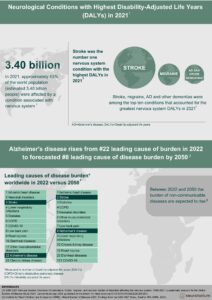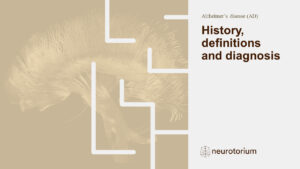Alzheimer’s disease can be characterized by three main phases:
(1) Preclinical AD: Abnormal AD biomarkers but no clinical symptoms
(2) MCI (Mild Cognitive Impairment): Individuals are mildly symptomatic but do not have dementia. MCI denotes cognitive decline without impairment in activities of daily living
(3) Dementia: Individuals show progressive loss of cognitive function and the ability to live independently
Read more about the typical course of Alzheimer’s disease





